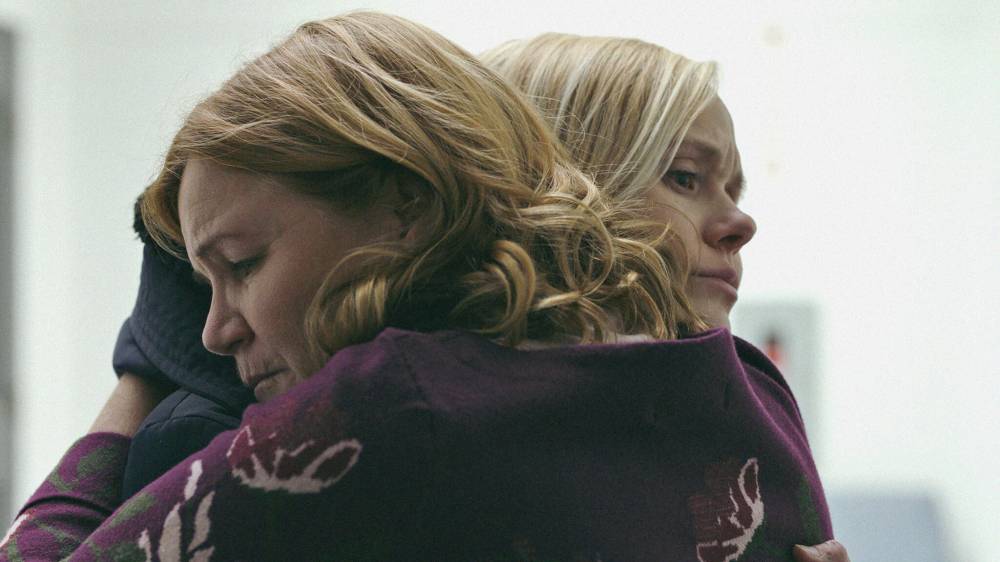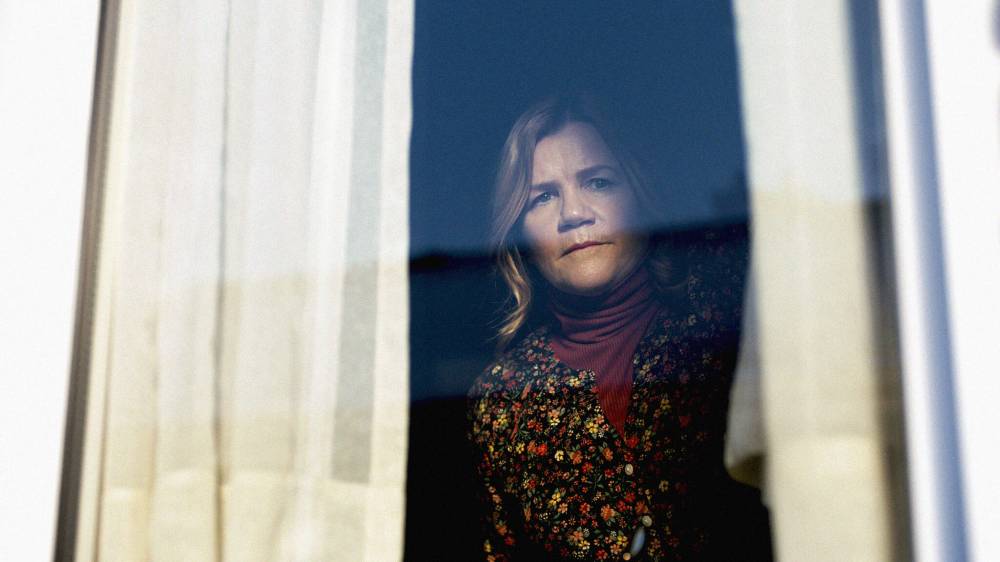Joy and pain Drama struggles to capture full breadth of author Miriam Toews’ narrative voice
Read this article for free:
or
Already have an account? Log in here »
To continue reading, please subscribe:
Monthly Digital Subscription
$0 for the first 4 weeks*
- Enjoy unlimited reading on winnipegfreepress.com
- Read the E-Edition, our digital replica newspaper
- Access News Break, our award-winning app
- Play interactive puzzles
*No charge for 4 weeks then price increases to the regular rate of $19.00 plus GST every four weeks. Offer available to new and qualified returning subscribers only. Cancel any time.
Monthly Digital Subscription
$4.75/week*
- Enjoy unlimited reading on winnipegfreepress.com
- Read the E-Edition, our digital replica newspaper
- Access News Break, our award-winning app
- Play interactive puzzles
*Billed as $19 plus GST every four weeks. Cancel any time.
To continue reading, please subscribe:
Add Free Press access to your Brandon Sun subscription for only an additional
$1 for the first 4 weeks*
*Your next subscription payment will increase by $1.00 and you will be charged $16.99 plus GST for four weeks. After four weeks, your payment will increase to $23.99 plus GST every four weeks.
Read unlimited articles for free today:
or
Already have an account? Log in here »
Hey there, time traveller!
This article was published 14/04/2022 (1335 days ago), so information in it may no longer be current.
In the opening scene of this moving but sometimes frustrating drama, a middle-aged man stands alone in a stretch of flat country. He quietly takes off his glasses and then steps into the path of an oncoming train.
Movie review
All My Puny Sorrows
Starring Alison Pill, Sarah Gadon and Mare Winningham
● Opens in Winnipeg Friday, April 22
● 103 minutes
★★★1/2 out of five
As this traumatic flashback makes clear, All My Puny Sorrows will be full of pain and heavy with the weight of family history. But because the film is based on the semi-autobiographical 2014 novel by former Winnipegger Miriam Toews, there should also be a line of rich, wry, often laugh-out-loud human comedy.

So much of Toews’ writing, from early works like A Complicated Kindness to the recent Fight Night, comes down to an irresistible narrative voice, one that is funny and tragic, sharp and tender, irreverent and compassionate, somehow all at once.
Canadian director Michael McGowan (One Week, Still Mine), who also adapted the screenplay for Puny Sorrows, struggles to find a cinematic equivalent to that voice. The result is a film that’s frequently powerful, often poignant and occasionally comic, but that ultimately feels disconnected.
After that harrowing first scene, we move into the main story, which takes place many years later but has not escaped the trauma of that bleak death. Yoli (Alison Pill of Snowpiercer and The Newsroom), a onetime Winnipegger now living in Toronto, feels adrift. Her novel has stalled out (she’s having “structural problems”). Having initiated a divorce, she is now putting off signing the final papers. She’s dating, in a desultory sort of way, and squabbling, affectionately, with her teenage daughter Nora (Amybeth McNulty).
Then Yoli gets a call from her mother, Lottie (the always wonderful Mare Winningham), that sends her rushing home to Winnipeg. Her sister Elf (Sarah Gadon of Alias Grace and True Detective) has attempted suicide. In contrast to Yoli’s messy mid-life, mid-novel confusion, Elf — a gifted concert pianist with an adoring husband (Aly Mawji) — is coolly competent. But she lives with despair and depression and now seems intent on following the path of their father, Jake (Donal Logue), the suffering soul seen in the opening scene.
Elf wants to die, and Yoli wants her to live, which means they are “enemies who love each other,” as Yoli says.
The beating heart of Puny Sorrows comes down to the central performances. This is an acting masterclass, with intense two-handers between Pill and Gadon, who convincingly convey a complex sisterly relationship. In-jokes, shared history, resentment, rage, forgiveness and especially love are all compressed into even their brief exchanges.
Pill, in particular, evokes a real Toewsian feel, in a portrayal that’s freighted with difficult emotion while also sounding self-deprecating, offhand and funny. At one point, Yoli says to Elf, “Thanks for mentioning me in the suicide note. Can we talk about my placement?”
Actors find connection as sisters in adaptation of Miriam Toews’ All My Puny Sorrows

Posted:
When we talk about “onscreen chemistry,” it’s often in the context of romantic leads.

Beyond the emotionally layered scenes between the sisters, though, the other characters and stories —Elf’s husband, Yoli’s placeholder boyfriend, a beloved aunt — never quite register. And while the story suggests the ways the past informs the present, with trauma resonating through generations, with matriarchal bonds holding things together, we don’t get to see enough of this onscreen.
Take this short flashback set in Toews’ fictionalized Mennonite town of East Village when the sisters are growing up, in which some repressive religious elders call in at the family home to suggest that the teenage Elf going off to university might “give her ideas.”
Jake asks, “Isn’t that what university’s supposed to do?” while Lottie can be heard very aggressively pounding chicken schnitzel in the nearby kitchen. Through Winningham and Logue’s lovely, lovely work, we get some sense of Lottie’s angry strength and Jake’s baffled decency. But we need more.
One last, completely Winnipeg-centric note: All My Puny Sorrows was filmed in North Bay, Ont. Winnipeg so often stands in for other places, it seems a shame that for this eminently Winnipeggy novel, we don’t get to play ourselves.
alison.gillmor@freepress.mb.ca
Other voices
Thematically, All My Puny Sorrows is an audacious project to tackle in a 105-minute film, one that can’t help but fall short despite the earnest effort. Life’s like that.
— Jim Slotek, Original Cin
All My Puny Sorrows, in some ways, feels like a spiritual companion piece to Petite Maman, but it exposes the blood passed down through raw generational wounds that can never heal.
— tt stern-enzi, WXIX-TV (Cincinnati, OH)
If love can’t save us, maybe intelligent, beautiful movies like this one can.
— Sarah Manvel, Critic’s Notebook
Not a mean feat considering that it isn’t Gadon alone who dominates All My Puny Sorrows. Alison Pill, playing a writer fretting over her diminishing prowess, also delivers a towering performance.
— Saibal Chatterjee, NDTV
The masterclass performances help anchor a film that is not void of imperfections, and ultimately makes this narrative exercise a worthwhile experience.
— Wilson Kwong, Film Inquiry
Director Michael McGowan struggles to deliver Toews’s inimitable voice… and only occasionally produces breakthrough scenes where humour and sorrow merge.
— Kate Taylor, Globe and Mail
Why sit there sighing as the actors strain to make Toews’ prose sound like naturalistic dialogue when you could go straight to the source and read them on the page?
— Angie Han, Hollywood Reporter

Studying at the University of Winnipeg and later Toronto’s York University, Alison Gillmor planned to become an art historian. She ended up catching the journalism bug when she started as visual arts reviewer at the Winnipeg Free Press in 1992.
Our newsroom depends on a growing audience of readers to power our journalism. If you are not a paid reader, please consider becoming a subscriber.
Our newsroom depends on its audience of readers to power our journalism. Thank you for your support.

.jpg?h=215)






